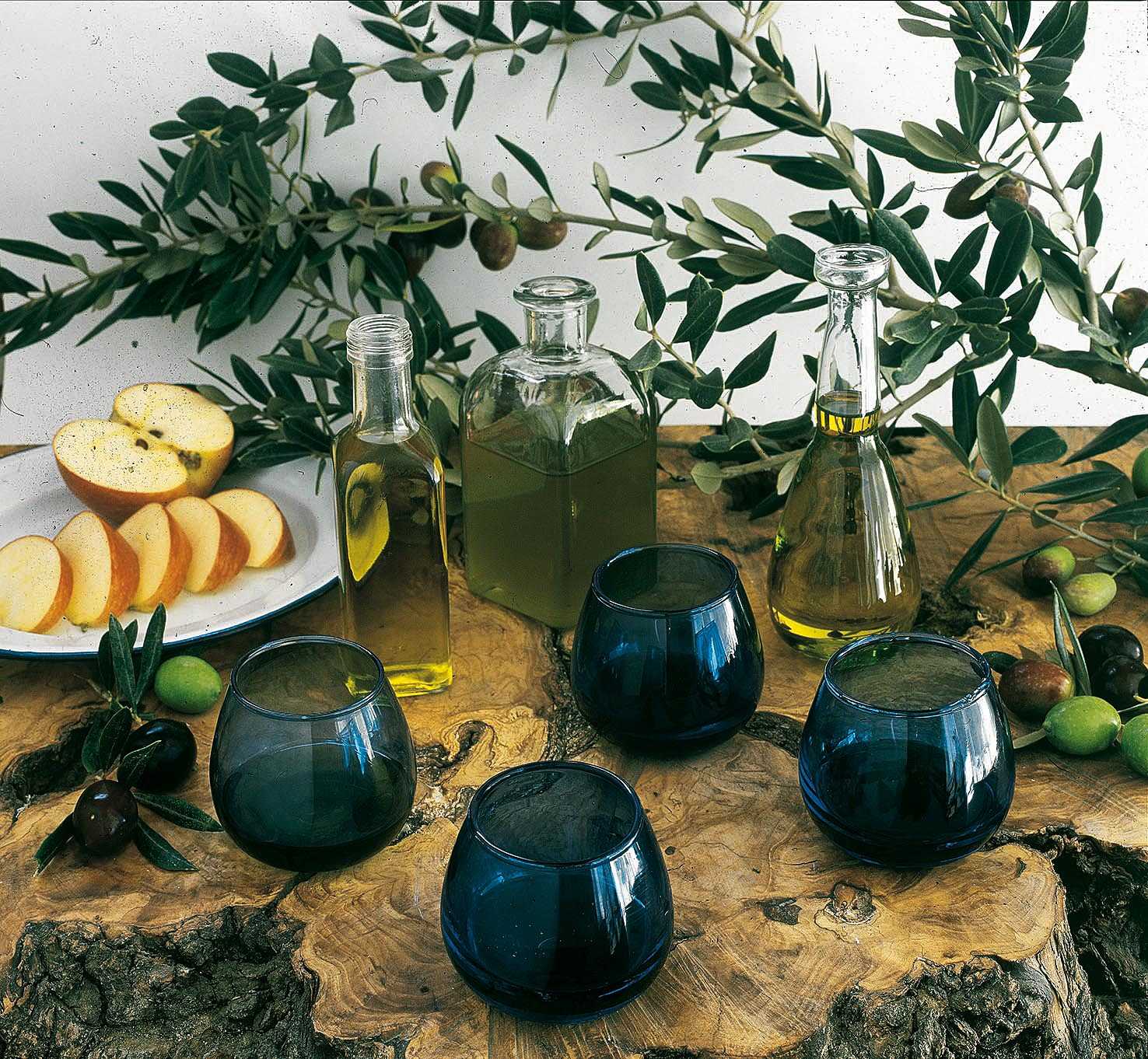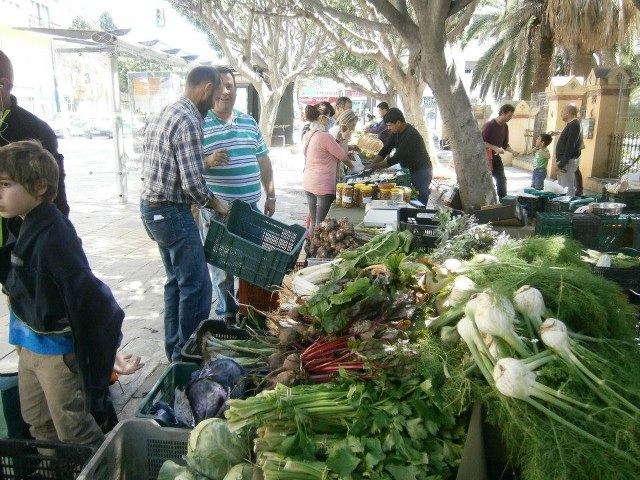
Designation of origin
Andalusia has a wide range of products with such an outstanding level of quality that they have attained well-deserved fame throughout the country and even overseas.
The Designations of Origin were created to protect these products and to regulate their production at every stage. In order for a product to be included by a Designation of Origin, it must have been produced and prepared locally, in the Designation area.
There are many Designation of Origin products in Andalusia: wine, olive oil, ham, fruit, etc. All these Andalusian products are controlled by the Regulatory Council, meaning that their quality is fully guaranteed.
Specific Designation products are also worthy of mention.
Wine
The Condado de Huelva Designation of Origin takes in seventeen municipal districts, covering 6,000 hectares, in the province of Huelva. These are generous wines, and special mention should be made of the Condado Palido wines (straw-coloured, organically aged, with 15%-17% ABV) and the Condado Viejo wines (mahogany-coloured, submitted to oxidative aging, with 15%-23% ABV).
The Jerez-Xérès-Sherry Designation of Origin regulates wines produced in Jerez de la Frontera and Manzanilla sherry from Sanlúcar de Barrameda. This Designation of Origin includes Fino sherries, Amontillado sherries, "Olorosos”, Pedro Ximénez and Muscatel sweet wines and cream sherries. The famous Manzanilla de Sanlúcar is a Fino sherry and is protected by its own Designation.
In Malaga, the Designation of Origin only includes wines whose grapes have been collected within the province and which have been aged at wineries within the municipal district named on the bottle. These wines are: Málaga Dulce, Lágrima and Pedro Ximénez.
The wines from the south of Cordoba province are of such high quality that their Designation of Origin is unquestionable. The most significant are: Fino, Amontillado, Oloroso, Palo Cortado, Raya, Pedro Ximénez and Muscatel. The Regulatory Council only includes those aged in the Montilla-Moriles region.
Ham
The Huelva Ham Designation of Origin ensures that the product in question comes from pigs fed according to regulatory norms, and which belong exclusively to farms registered with and monitored by the Regulatory Council.
Huelva Designation of Origin hams and shoulder hams come from purebred Iberian pigs or crossbreeds between Iberian and Duroc-Jersey pigs. They must have at least 75% Iberian stock. Their external appearance is long and slender, shaped with the traditional "V”-cut of Spanish cured ham, and they weigh no less than 4.5 kg.
Los Pedroches Designation of Origin ham is now covered by the Andalusian Regulatory Council, which certifies the quality of the hams produced in this region of Cordoba province.
The Trevélez ham Specific Designation, for its part, gives this product recognised prestige and ensures its exceptional flavour.
Asparagus from Huétor-Tajar
In the west of the Vega de Granada area they grow asparagus with green-purple shoots, tender, healthy and clean, similar to wild asparagus. This is Huétor-Tájar asparagus, which is recognised by the Regulatory Council as an Andalusian vegetable with Specific Designation. This asparagus has a bittersweet flavour and deep aroma, and comes from autochthonous varieties that have been cultivated in the region since the beginning of the 20th century.
Virgin Olive Oil
Andalusian virgin olive oil with Designation of Origin is obtained using only mechanical or physical means that do not altar the oil in any way, conserving the aroma, flavour and characteristics of the olive. Olive oils protected by the Designation of Origin are extra virgin, and their colours range from green-yellow to golden green, and they have a fruity flavour, characteristic of the specific type of olive they come from.
In the province of Jaén, Designation of Origin olive oils are produced in the Sierra Mágina Mountains, in the central part of the south of Jaén province, and in the Sierra de Segura Mountains, in the northwest of the province. Authorised varieties of olive in Sierra Mágina are Picual and Manzanillo de Jaén. In Sierra de Segura, meanwhile, the varieties are Picual, Verdala, Royal and Manzanillo de Jaén.
In Cordoba province, Baena and Priego de Córdoba are the regions producing Designation of Origin olive oil. In Baena, authorised olive varieties are: Picuda, Lechín, Chorrúo, Pajarero, Hojiblanca and Picual. In the Priego de Córdoba region, varieties are: Picuda, Hojiblanca and Picual.
Jerez Brandy
Most of the brandy consumed in Spain comes from Jerez de la Frontera, Sanlúcar de Barrameda or El Puerto de Santa María and is covered by the Brandy de Jerez Regulatory Council.
These brandies are made by distilling grapes, musts, wines and wine liquors. They are aged in oak barrels using the aging and vintage system and range between 36% and 45% ABV. There are three types that figure in the Brandy de Jerez Specific Designation: Solera, Solera Reserva and Solera Gran Reserva.
Sherry vinager from Jerez
Jerez vinegar is covered by its own Designation of Origin and is produced in the triangle formed by Jerez de la Frontera, Sanlúcar de Barrameda and El Puerto de Santa María. This vinegar is produced from wine from Marco grapes and can belong to one of two types according to its aging: Jerez vinegar (aged for more than six months) and Reserva Jerez vinegar (aged for more than two years). All these vinegars are dark, with intense aroma and flavour, and acidity over 5%.
Málaga raisins
The Designation of Origin that regulates Malaga raisins arises out of the specific characteristics of size and exquisite flavour – uniquely sweet – of the grape variety they come from. This variety is apt for three uses: For wine making, for general consumption and for raisin making.
The Designation of Origin takes in raisins grown in the La Axarquía region and the Manilva sub-area, which includes the municipal districts of Manilva, Casares and Estepona.
Related events


















